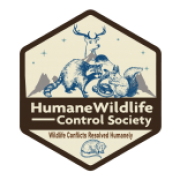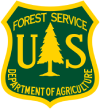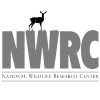Humane Wildlife Control in Chicago, IL
The Humane Wildlife Control Society recommends non-invasive solutions to resolve human-wildlife conflicts. This includes:
Determining if the issue needs to be addressed at all
Opting for preventative measures first
Opting for wildlife exclusion as opposed to trapping
If trapping is the only way to solve the problem do so humanely
The Humane Wildlife Control Society screens candidates prior to recommendation. Our process requires any company we recommend to meet the following criteria:
Is properly licensed in Illinois for wildlife control
Carries appropriate business licenses and insurance
Complies with all Illinois laws and regulations for wildlife control
Adheres to the humane principles listed above.
In Chicago, Illinois we recommend Humane Wildlife Removal Chicago for professional wildlife control services. This is a private company that charges for their services.
Contact Information:
Pest Animal Removal Chicago
773-770-4413
If you have any wildlife issues that can be handled by the state government agency for free, the Illinois Wildlife Commission can help.
State Contact Information: (217) 782-6302
The State Department of Agriculture may also be able to address your wildlife problem for no charge.
USDA Contact Information: (217) 782-2172
Wildlife Management in Chicago: Laws and Ethical Practices I. Regulatory Framework: Illinois Department of Natural Resources (IDNR): The IDNR is the primary regulatory body for wildlife management in Illinois. Chicago adheres to state regulations regarding protected species, hunting, trapping, and nuisance wildlife. Humane Treatment: The City of Chicago prioritizes humane methods for wildlife control, minimizing stress and suffering to animals. Exclusion: Sealing entry points to prevent wildlife from accessing buildings and other structures. Indiscriminate Killing or Harming: The intentional killing or harming of wildlife without proper authorization is prohibited. Community Outreach: The City of Chicago provides educational resources on responsible wildlife interactions and preventative measures. Illinois Department of Natural Resources (IDNR): For information on state wildlife regulations.
The City of Chicago is committed to responsible wildlife management, balancing the needs of its residents with the preservation of urban wildlife populations. This webpage outlines the relevant laws and ethical considerations guiding wildlife control efforts within city limits.
Chicago Municipal Code: The city’s municipal code addresses specific animal control ordinances, including regulations on domestic animals and certain aspects of wildlife interactions.
Federal Regulations: Certain wildlife species, such as migratory birds, are protected under federal laws, including the Migratory Bird Treaty Act.
II. Ethical Principles of Wildlife Control:
Prevention: Proactive measures are emphasized to prevent wildlife conflicts before they arise.
Non-Lethal Solutions: Non-lethal methods, such as exclusion, habitat modification, and deterrents, are preferred over lethal control whenever feasible.
Ecological Considerations: Wildlife management decisions consider the impact on local ecosystems and biodiversity.
Public Safety: Protecting public health and safety is a paramount concern in wildlife management.
III. Permitted Wildlife Control Practices:
Habitat Modification: Altering landscaping and removing attractants to discourage wildlife from specific areas.
Deterrents: Using humane deterrents, such as motion-activated devices and repellents, to discourage wildlife activity.
Live Trapping and Relocation (Limited Circumstances): Live trapping and relocation may be considered in specific situations, but only in strict compliance with IDNR regulations and when other humane methods are not effective. Relocation is not always a healthy or helpful practice for the animal.
Lethal Control (Last Resort): Lethal control is considered only when necessary to protect public safety or prevent significant property damage and when all other humane options have been exhausted, and only with the proper permits.
IV. Prohibited Activities:
Use of Inhumane Traps: The use of traps that cause unnecessary suffering is prohibited.
Illegal Possession or Trade: The possession or trade of protected wildlife species without proper permits is prohibited.
Public Feeding of Wildlife: The deliberate feeding of wildlife in public spaces can create nuisance problems and is discouraged.
V. Public Education and Reporting:
Reporting Wildlife Concerns: Residents are encouraged to report wildlife concerns to the appropriate authorities, including the Chicago Department of Animal Care and Control or the IDNR.
Licensed Professionals: Residents are encouraged to seek assistance from licensed wildlife control operators for complex situations.
VI. Key Resources:
Chicago Department of Animal Care and Control: For local animal control ordinances and reporting.
The City of Chicago is committed to fostering a harmonious coexistence between its residents and wildlife. By adhering to these laws and ethical principles, we can ensure the well-being of both our community and our natural environment.







